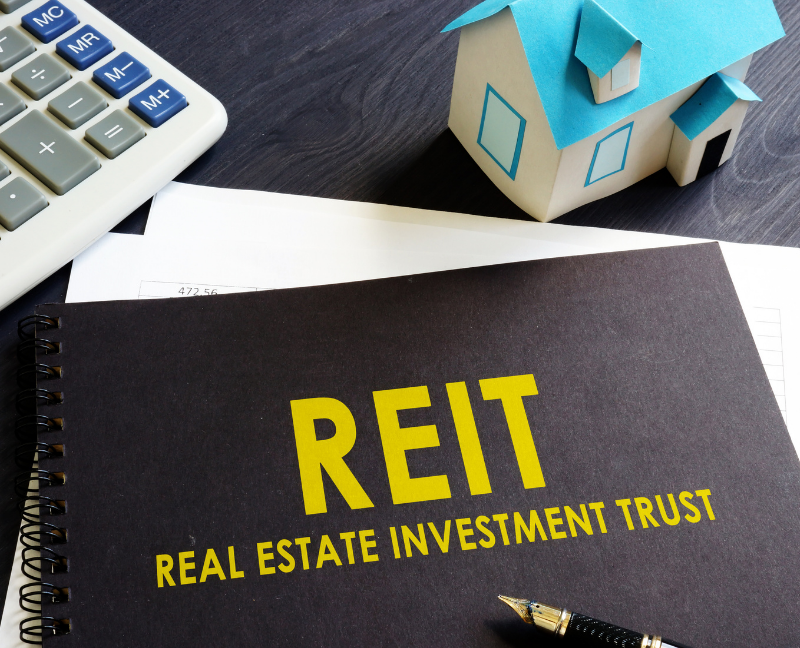There are many reasons why people buy a house. For some, it's motivated primarily by security and safety, thus the consideration of living in a gated community.
Homes in gated communities are widely available for purchase around the nation, but why are they so appealing?
In this post, we'll try our best to answer why some homeowners choose a gated community.
Living in gated communities has many benefits. Although no area is 100% safe, those with heightened security offer many safety advantages.
The main reason individuals move to gated communities is safety. The gated community prevents thieves, vandals, and outsiders from coming easily. Since residents in a private neighborhood know one another, it's easy to spot strangers. And this contributes to a lower crime in the neighborhood.
Everywhere, speeding occurs. Drivers driving from busy main highways into quiet neighborhood lanes often speed or drive dangerously, endangering children and driveway backers. Before entering a gated neighborhood, cars must stop to assess the environment and lower their speed to residential limits. In most gated communities, speeding citations can be issued, making pedestrians and children safer.
Parents can relax in guard-gated communities with minor crimes and speeding. High security makes guard-gated neighborhoods safer for children and pedestrians. Safety is improved for joggers, bicyclists, dog walkers, and anyone who appreciates walking near roads without concern.
Safety is crucial in these communities. Controlled access means that only residents or friends of residents can enter a guard-gated neighborhood. Safety and security are increased by security cameras that record who enters and departs these communities. Gated communities reduce unwanted traffic and raise awareness of who comes and goes.
These neighborhoods have pleasant neighbors who enjoy socializing. Being neighbors builds trust, reducing daily worries about family and property safety. Gated communities hold parties and events that bring people together.
Additionally, most gated communities have an Architectural Review Board that strictly regulates home and lot design, building, and look. This prevents unattractive houses and neglectful neighbors. An unspoken agreement arises amongst gated community inhabitants. They help neighbors and look out for one another.
In complexes featuring community facilities like pools, tennis courts, and golf courses, restricted access and traffic create privacy. These neighborhoods are monitored more, allowing inhabitants to enjoy their pastimes secretly. Every member of the community wants privacy and gives it to their neighbors.

Each gated community offers luxury residences. Condos, single-family homes, and elegant villas built to high standards and codes are typical. Buying a home in one of these neighborhoods costs more, but it will be worth more when you sell it. Gated communities may increase in value due to their exclusivity, especially in areas where new homes cannot be built.
HOAs set covenants, conditions, and restrictions in gated communities. These requirements cover common area, amenity, landscaping, roads, and pathway maintenance. Gated communities' grounds are maintained due to higher standards—positive effects on property, value, safety, and community aesthetics.
Eco-friendly communities are sought by those who value living there. In many luxury gated communities, energy comes from solar, wind, and water. Green homes in these neighborhoods use eco-friendly materials and are energy-efficient. Living in such a neighborhood will save money on your electric bill and save the world. Living sustainably is healthy and good for the environment.
Gated communities frequently provide modern amenities for active lifestyles. As a resident of one of these communities, you'll likely have access to a contemporary gym, sports courts and fields, clubs, pools, and other amenities. Many gated communities have golf courses within or near the gates. Most fitness centers provide daily sessions and lessons to improve your game, remain healthy, learn something new, or do all the above.
The design and ambiance of a gated community are essential. These communities are usually built to be beautiful and valuable. They have many parks and open spaces for relaxation. Gated communities have well-kept landscaping year-round. Noise is low, and the environment is peaceful. Additionally, most gated communities have large bike and walking pathways for morning walks and evening cycling.
As mentioned, gated communities offer more than safety. The main advantage of a gated community is safety. Still, there are others, such as leading an active lifestyle, supporting an eco-friendly environment, enjoying quiet, and having a fantastic sense of community.
Living an environmentally-friendly lifestyle is sometimes misunderstood, mainly because it's costly, inconvenient, and demanding.
But in reality, choosing to live in a sustainable way is relatively simple; all it takes is one slight adjustment at a time to make a big difference. In this post, we’ll share some eco-friendly tips to help you get started.
The average home uses 9% of its energy on lighting.
Now, if you want to lower your energy bill and environmental impact from all your light bulbs, using LED bulbs is a cheap and easy alternative. It also provides high-quality light output and emits less heat, unlike standard bulbs, which might make your air conditioner work harder.
LED bulbs have also evolved to fit recessed lighting and dimming controls.
Not only are plastic water bottles uneconomical, but it's also harmful to the environment. Plastic production requires three times the water in a water bottle to make one, yet 80 percent aren't recycled.
So instead of constantly buying a plastic bottle, get a reusable, portable water bottle.
Not only will you save money by reusing a water bottle, but there will also be fewer plastic bottles needed.
The good thing about having recycle bins is that it makes you more aware of recycling glass bottles, jars, paper, and other objects. To simplify recycling and composting, have trash and recycling bins in more than just the kitchen.
Meanwhile, a compost bin will let you eliminate leftovers and give your plants free fertilizer.
Tip: Make sure that the compost bin has a tight cover and a secure hatch at the bottom for extracting fertilizer when ready to use to avoid pests.
Reducing meat consumption can create a significant impact on the environment as it helps reduce GWP emissions.
In case you didn't know, more than 30 percent of the Earth’s surface is being used to raise and support livestock.
“The livestock sector accounts for 9 percent of CO2 deriving from human-related activities but produces a much larger share of even more harmful greenhouse gasses. It generates 65 percent of human-related nitrous oxide, which has 296 times the Global Warming Potential (GWP) of CO2," according to research by the United Nations.
Other than the GWP gas emission, consuming fewer farm animals means having more land to use for recreation.
So instead of having meat-only meals, consider consuming more vegetables and seafood.
Choosing to live in an eco-friendly home setup doesn't mean leaving paper towels for good. It's about using old shirts or fabric for cleaning or drying instead of buying a dozen paper towels.
Regular toilet paper is not eco-friendly because everyone uses 100 rolls yearly.
If you want to switch to an eco-living lifestyle, you should use bamboo toilet paper for the sake of environmental sustainability since there are bamboo species that grow 36 inches in 24 hours.

Monitor and control your HVAC systems with a programmable thermostat. Smart thermostats lower utility bills and make homes greener. It also saves energy, which, for some, is the main reason to upgrade.
A smart thermostat lets you arrange your HVAC to operate less while you're away, saving you energy by cooling your home just when you're home.
You can set your digital thermostat to turn on right before family members arrive to cool your home to 72 degrees from the minute you enter. Nest claims 15 percent cooling savings and 10–12 percent heating savings.
Turning them off while leaving a room, especially when leaving the house, saves energy and money. However, the electricity saved by turning the electric lights off depends on the bulbs used.
For instance, incandescent bulbs are energy-inefficient. Before producing light, these lights convert electricity into heat. It provides 90% heat and 10% light. Thus, turning off incandescent light bulbs saves energy at home.
So if you leave your house for over 15 minutes, be sure to switch them off to save electricity. The method also extends CFL bulb life.
Meanwhile, LED bulbs won't be affected by turning them on or off.
One of LED lamps' key features makes them perfect for residential energy conservation. They can also be turned on and off automatically and brightened instantaneously with sensors.
Energy Star estimates that washing machines consume 90% of their energy to heat water. Washing with cold water can reduce carbon dioxide emissions by 1,600 pounds annually.
Instead of heating, run your washing machine on cold. Not only does this cut carbon dioxide emissions, but it also preserves your garments, as hot water can fade colored clothes.
Unless you have oil stains, there's no use in washing on hot. You can try warm water if cold doesn't work. Still better than hot water; it cleans better than cold water.
The EPA found that dryers use more energy than refrigerators, washers, and dishwashers, and line drying can cut primary appliance energy use by one-third.
Fresh-air line-drying is remarkable. Also, drying clothes and bedding on a rack outside instead of in the dryer will prolong their life. Establishing a drying rack on your balcony and opening the windows will let the sun dry your clothing faster if you don't have a garden or backyard.
Home cleaning supplies contain the most potent bacteria-killers. These products are designed to kill almost all organisms. Man-made poisons harm the ecosystem and kill animals and plants once they enter our waterways via sewers, and these are just some of the reasons why opting for natural cleaning ingredients is a must.
Using organic cleaning products might be a better option but it can be costly. What you can do instead is to use DIY cleaning products made with vinegar, baking soda, and lemon juice. Not only is this eco-friendly, but it also helps reduce packaging waste and household chemical pollution.
Canvas bags replace inefficient plastic and paper bags at most stores. Although canvas bags are inexpensive, they are convenient. Canvas bags are more robust, hold more than plastic or paper bags, and help store and transfer objects.
Even if you don't use canvas bags, reusing plastic bags benefits the environment. Put plastic bags in tiny trash cans around the house or recycle them. Every little bit helps.
These are just some ways to make your home eco-friendly. Watch out for Part 2 to learn more tips.
In exploring "Questions About Buying A Home," the initial considerations include establishing a housing budget within 25% of monthly income, optimizing a 5–10% down payment, and understanding the nuances of closing costs.
These financial insights, strategic planning for moving costs, and mindful choices in furnishing and decorating lay a solid foundation for informed and responsible home buying.
So, in this part, let us continue discussing the questions to ask about buying a home.
If you've never lived in a hurricane-prone area, you've probably never had to defend yourself. Ask if your new home is prone to tornadoes, floods, wildfires, earthquakes, or ice storms. Then, make sure your house insurance covers local natural disasters. You may require extra coverage if not.
It’s hard to answer this problem independently; you need a house inspection before buying. Your seller must report known issues, although they may leave something out.
A good home inspection will explain the safety and performance of the roof, foundation, HVAC, and plumbing systems safety and performance. If there are red flags, you can pass or negotiate a cheaper price and solve the issues yourself.
Asphalt roofs last 20 years, according to most experts. So, ask this critical roof inquiry before buying a house: How old has the roof been there?
Replacement of an aging roof might cost over $12,000. A sudden replacement might ruin your budget.
Imagine getting into your new home and discovering all the appliances are broken. You can avoid such a surprise if you know certain essential appliances are dying before buying the house. The vendor may also offer a good deal.
Ask about the lifespan of all house items and when the old or worn-out items will be replaced. This includes the HVAC, water heater, washer, dryer, fridge, stove, and dishwasher.
Since different states have varying regulations regarding what must be included in a property purchase, you must find out what is included with the house you purchase. Don't automatically assume you're buying every light fixture, appliance, and window covering when submitting an offer. If so, you can become unhappy when the refrigerator is gone, and there's a large empty area in the kitchen.

You should know what nearby similar houses are in the market. This will help you know if the home you seek is reasonably priced. You can get the answer from your real estate agent since they will be intimately familiar with the types of homes currently for sale in the neighborhood where you are looking to buy. And just so you know the technical terms, this is a competitive market analysis (CMA).
Find out why the seller is selling their home. Knowing their motivation in selling their property might help you negotiate.
For instance, sellers leaving because of a new job may be more likely to negotiate a price to sell it faster. Probing them can also help you learn more about the quality of the house.
It's a red flag if the seller can't clearly state their reason for moving or selling their home, such as looking for a bigger house or wanting to live close to their families.
Usually, when a home has been listed on sale for a longer time, it means that there might be an issue.
When a home is listed on the market for a long time, it might mean that there's an issue. Usually, it's because the asking price is too high, its location, or the home's layout.
In March 2023, U.S. residences averaged 54 days on the market. now, this number might be different depending on the location and season. Ask your real estate agent about house sales speed in your market—every market is different.
Conclusion
These are just some of the most important questions that you might ask regarding the homebuying process. There might be more as you go along the way. The key is asking as many questions as you can to your real estate agent and/or the seller before closing the deal.
Do you have more questions about selling or buying a home? If yes, feel free to drop them in the comments or call us at 317-316-8224 we can assist you!
The holidays might be exciting, but it can also be a stressful and expensive time of year. On top of this, decorating your home for the first time can be challenging.
If you want a home makeover on a budget, this post will share some DIY holiday transformations without spending so much.
Below are the following four tips you may consider if you want a makeover on a budget:
Putting together a neutral base of decorations is one way to reduce the likelihood of replacing pricey, on-trend pieces every year.
Pieces with a natural theme, snowflakes, and string lights are typically accepted and deemed ageless. In addition, you might consider sticking to a color scheme consisting of white, silver, and gold. By having a theme, you can avoid the potential temptations of impulsive buying while maintaining flexibility for possible future living arrangements.
Decorations are added to be... well, decorative. However, owning beautiful items for the sake of being beautiful may quickly turn into pricey clutter that you dislike keeping in a closet all year long, only to pull out and place on an end table. That said, checking for items that can serve multiple purposes can help you save money. For instance, instead of buying more holiday-specific gift wraps, use gold gift bags and white tissue paper for birthdays, bridal and baby showers, bachelorette parties, and wedding gifts.

Purchasing new items annually may be the best option if you don’t have enough storage space, and you can do a home makeover on a budget if you consider doing this. These days, fake trees are relatively easy to disassemble, and any rough parts on the tree may be covered up with additional garlands and decorations.
Since your tree will take up the same amount of room every year, adding to a collection of modest decorations won't affect your space as much as a tiny village or snow globe collection. Hanging Christmas cards from a fishing wire hanger on the wall is an additional space-saving method of bringing cheer.
Have fun as you establish roots—whether alone or with a family, in your present residence, or one that awaits you down the road—you'll be honing your sense of style and perfecting your home decor.
You may more successfully scan post-holiday clearance discounts and put new scores aside from your existing likes if you have a long-term vision. Setting long-term goals gives us everything to look forward to in both personal finance and design. Remember that you need to be patient and trust the process.
The key to success in doing a holiday makeover on a budget is a classic approach, considering decoration utility, storage limits, and a long-term goal. Holiday decorating should emphasize simplicity, functionality, and long-term vision.
Buying a home is all fun and games until you buy a home. It costs a fortune, has too many decisions to be made, and isn't easy to even know what to search for.
So before you start the home-buying process, it's crucial to do research and ask as many questions as you can.
Not sure what questions to ask? Don't worry! We've made it easier for you.
We've put together a list of questions to ask when buying a house to make you feel more at ease about the process.
This is the first question about buying a home since having an appropriate house budget avoids overspending on a home. Being saddled with a hefty monthly payment you can barely afford is disastrous and might lead to a huge debt. You must own your house if that happens.
Therefore, when determining your budget, it's practical to limit your mortgage payments to 25% of your monthly income. Thus, your budget will have the capacity for additional financial goals like retirement investing each month.
The 100 %-down plan is excellent for home buying as well as buying a house in cash. Aim for a 5–10% down payment on your first property if you intend to get a mortgage. A higher down payment reduces monthly payments, debt, and risk. After waiting a while and saving 20%, you'll avoid private mortgage insurance (PMI), leaving extra monthly money in your budget.
You can consider a 15-year fixed-rate mortgage if you buy a house. Stop taking 30-year loans since they increase debt and interest. Stay clear from adjustable-rate mortgages, FHA loans, and VA loans—they include hidden expenses.
Closing costs are typically 2–5% of your home's buying price. Closing costs for a $300,000 home are expected to be $6,000–15,000. Save enough for closing fees in addition to a down payment.
Local movements are less expensive than long-distance moves, varying significantly depending on the distance traveled. Verify your finances to make sure you have enough saved to cover unforeseen expenses.
If you're moving for a job, your new employer may offer a relocation package to cover your costs—64% of employees received relocation reimbursement in 2022.

This depends on the money you have for furnishing. If you purchased a fully furnished property, you're lucky; if not, you need to plan for decorating and furnishing your home.
This may be as simple as moving your furniture to your new home or buying new items.
When purchasing items, only buy new or old furniture you can afford to pay cash for. Adding consumer debt to a mortgage is one of the most costly home buying mistakes. Decorating one area at a time can help you meet your financial goals.
Asking about location is essential. You should know various things about an area before moving in, including:
Gaining some understanding of these details can assist you in determining whether a particular area or community best suits your needs and objectives.
Having kids makes asking about the school districts near your future home important. But if you don’t have kids, a property near good schools may be worth more when you sell your home in the future.
These are just some of the questions you can ask yourself before getting a new home. We have more questions in the next part, so be sure to click this link.
One of the most crucial instruments in today's real estate market for property sales is technology. Among those technological tools, one of the newest and most important ones for selling a house quickly is a virtual tour of real estate. This technology allowed military members to be transferred, investors to increase their portfolios, and homeowners to select vacation properties. Virtual tours enable real estate agents to help buyers find homes and give sellers unique marketing tools.
Buyers want to rapidly find their next secure haven, which may be their office, gym, or classroom over months or years. Sellers want to prevent strangers from entering their homes while reaching enough buyers for the greatest offer. Virtual house tours are popular, but there are many choices for buying or selling a home.
Many real estate specialists who had never utilized virtual tours had to adjust rapidly during the pandemic. Not everyone can produce a "virtual tour" as last year due to time and resource constraints.
360° photos are used in traditional virtual house tours to show all sides. These let virtual tour viewers see up, down, and around a home's interior and exterior. A dollhouse-like digital model can be created from 360° photographs using software. Agents may also use Virtual Staging to embellish spaces with digital furniture and wallpaper or paint.
Online Walkthroughs show you strolling about the home, unlike traditional virtual tours. The seller or agent will hold a camera or smartphone and go through the house to make a video. Online walkthroughs can be pre-recorded or live.
They are also called Virtual Showings or Online Open Houses if live. A scheduled, one-on-one Virtual Showing begins at the exterior and moves around the home like an in-person tour. Virtual Showings include FaceTime or Skype from your agent from a home you're interested in. Online Open Houses are more flexible, allowing viewers to join and leave group video calls on Instagram, Facebook, or Zoom.
These kinds of virtual tours show property details more clearly than static images. However, a new refrigerator or the size of the master closet aren't the only variables when buying a property. It's a good thing virtual tours are great for human connection.
Virtual house tours let buyers see the house from every angle, visualize themselves living there, and assess if the flow and features suit their lifestyle. Live video walkthroughs in the real estate agent reveal non-visual details like creaking floors, quick internet, and community dynamics. Plus, you may ask concerns and get an insider's take on the home's best features.
Virtual tours are now my standard recommendation for sellers to showcase their homes and attract buyers. You can be sure that interested buyers are still seeing your house up close and personal, which will inspire their best offers.

Even though certain government limitations are lifted, virtual tours are still advised for buying and selling real estate. Buyers don't have to worry about previous visitors, while sellers lose foot traffic. Some data suggest virtual house tours make agents safer by reducing in-person showings and open houses.
Many virtual tours are available, but some buyers need to view a home to feel secure enough to make an offer. Realtors may advise purchasers to stay in their cars and wear gloves and face covers on the day of the in-person tour. Many sellers give hand sanitizer and ask buyers not to touch any surfaces. The agent will turn on lights, doors, and curtains.
Real or not, virtual tours are expanding buyer and seller alternatives. The average buyer saw ten homes over ten weeks before making an offer in 2019. However, virtual tours save them time and allow them to view many homes quickly to create their ultimate pick.
As a buyer looking at a home from a couch, know you're not alone. You're competing with other buyers viewing the same properties, so collaborate with your real estate agent to make a solid offer when you find the property of your dreams. Sellers should evaluate the desire for a quick sale against the temptation to accept additional bids, which can extend the listing period by six percent. Agents can help you choose the best plan for your priorities.
Virtual tour creation, editing, uploading, and promotion for listings are expensive. Virtual staging and advertising will increase a listing's marketing expense. Even affordable methods like video call walkthroughs involve seller and agency time and effort.
These costs imply sellers may not want a comprehensive virtual tour bundle. Your agent may advise against a lengthy virtual tour, showing, and open house while marketing your home. That style of promotion may not appeal to your potential buyers, the investment-to-return ratio may not be favorable, or there may be other ways to get eligible buyers to notice your listing.
Buyers, some listings in your search may have something other than virtual tours. Those for-sale homes may have yet to need a full virtual marketing package to attract buyers or be better marketed traditionally.
Have you tried a virtual tour? If yes, how was your experience with it? We'd love to hear your thoughts in the comment section.
Buying a home is one thing; bidding for your dream house is another. It can be overwhelming and stressful, especially if you haven't done this before.
You may have prepared everything you need to purchase the property you want only to be outbid by another home buyer.
So, how to get a house in a bidding war and make sure that you end up with the home you want?
In this post, we'll give you easy steps that will make your offer stand out from the others.
During the process of purchasing a home, a bidding war might break out when there are numerous purchasers interested in buying the same property.
Each prospective buyer of a home continues to submit an offer that is higher or better than the previous one, which ultimately drives up the price of the residence.
In very competitive real estate markets, bidding wars may get out of control and even look nasty.
Here are nine simple steps on how to get a house in a bidding war:
Home-buying for the first time doesn't have to be complicated. You can save time and money by hiring a market-savvy real estate agent. The agent will negotiate with the seller's agent and recommend reputable, low-interest lenders. An expert loan officer with local roots can help the sale go through—request mortgage pre-approval to simplify the procedure.
Show the seller and agent you want the home. Most sellers worry about mortgage loan denials stopping the purchase. Request pre-underwriting from your lender before making an offer. A pre-approval shows you have funds, enhancing your negotiating power. This may speed up the closing procedure and waive your financial contingency.
Waiving buyer contingency clauses may help you get an offer approved on a house with many offers. Contingency offers eliminate surprises like repairs and title issues after buying a house.
Removing contract contingencies can sweeten your offer as the real estate market lacks homes. Strategy risk is higher. If you want to waive your financing or inspection contingency, talk to your real estate agent.
Down payments often indicate the buyer's financial situation to the seller. If the seller compares bids, a bigger down payment may suggest a stronger commitment to closing.
More cash in the bank informs the seller you won't walk away after low appraisals or hefty repair bills. To entice the seller, provide earnest money—sellers like purchasers with good faith deposits who want their ideal home. Average charges are 1% to 3% of the purchase price, depending on area.
As home inventories decrease, homebuyers must be inventive to convince sellers to accept their bids. Escalation clauses in buyer contracts allow you to match and offer more than the highest bid until a specified amount.
Consider inserting an escalation clause carefully. Seller's agents can use the clauses to get you to pay significantly more for the home than contracted. Talk to your realtor before utilizing this aggressive technique.

Appraisal discrepancies are a major cause of missed house sales. If prices soar faster than appraisers can justify, they will value a home below contract. A lesser price may cause sellers to walk away.
Offering to fill part of the evaluation gap can boost your offer. Paying more than the home's value may be necessary. Waiving the appraisal contingency and contributing to discrepancies ensures the seller won't have to lower the price following the house inspection.
An advance cash payment is the easiest way to get a house offer accepted with many offers. You have the money to close an all-cash home payment. A clean offer without mortgage lender contingencies is also what it means. Eliminating finance problems speeds up closure.
Acknowledge sellers' demands with some flexibility. If you can afford closing costs, offer. Understanding each seller's wants and acting fast will help you beat other bidders to the sale. To respond fast to the seller, make sure your real estate agent communicates. The seller may accept your offer if you show that you are serious about closing quickly and without complications.
Giving the seller a personal letter with your contract offer is outmoded. Your letter might convey that you value the home where they built many memories, enticing them to accept your proposal.
Avoid using your religion, race, or politics in the letter to avoid unconscious bias. Growing Fair Housing Act litigation is discouraging real estate brokers and their clients from employing this method.
Rejections for homes on the market might demoralize buyers. You may need to entice sellers with your bid.
The tips above can help show your willingness to go the extra mile to buy the property.
Do you have more tips on how to make your offer stand out? If yes, feel free to drop them in the comment section!
In today's world, energy efficiency is not just a buzzword; it's a smart way to save money, reduce your environmental impact, and make your home more comfortable. Whether you're looking to lower your utility bills, reduce your carbon footprint, or enhance your home's value, creating an energy-efficient home is the way to go. Today, let’s explore a range of tips and strategies to help you achieve an energy-efficient home.
Before delving into practical tips, let's take a moment to understand why energy efficiency is crucial:
Lower Utility Bills: An energy-efficient home consumes less energy for heating, cooling, and electricity, resulting in substantial cost savings.
Reduced Environmental Impact: Lower energy consumption translates to reduced greenhouse gas emissions, helping combat climate change and protect the environment.
Enhanced Comfort: An energy-efficient home is a more comfortable home. Proper insulation, sealed gaps, and efficient heating and cooling systems provide consistent indoor temperatures.
Extended Equipment Lifespan: Energy-efficient appliances and systems experience less wear and tear, leading to longer lifespans and fewer replacements.
Increased Home Value: Energy-efficient features can make your home more appealing to potential buyers, potentially increasing its resale value.
Now, let's dive into the practical steps to make your home more energy-efficient.
Start by identifying areas of improvement. Hire a professional or conduct a DIY energy audit to pinpoint where your home is losing energy. Common culprits include inadequate insulation, drafty doors and windows, and outdated appliances.
Proper insulation is key to maintaining a comfortable temperature indoors. Consider adding or upgrading insulation in your walls, attic, and floors. It's a one-time investment that yields long-term savings.
Gaps and cracks in doors, windows, and walls can lead to energy waste. Seal these areas with weatherstripping or caulk to prevent heat loss and drafts.
When it's time to replace appliances, choose ENERGY STAR-rated models. These appliances are designed to use less energy while providing the same level of performance.
Replace incandescent bulbs with energy-efficient LED bulbs. They last longer and use significantly less energy, reducing your lighting costs.
A smart thermostat allows you to control your home's temperature remotely and program it to reduce heating or cooling when you're not at home, further reducing energy consumption.
Consider installing solar panels on your roof. They can significantly reduce your reliance on grid electricity, leading to substantial savings over time.
Double-paned or triple-paned windows offer better insulation, preventing heat loss in the winter and heat gain in the summer.
Install low-flow faucets and showerheads and consider a tankless water heater to reduce your hot water consumption.
Simple changes like turning off lights when not in use, unplugging electronics, and maintaining your HVAC system can also contribute to energy efficiency.
Creating an energy-efficient home is a wise investment that pays off in numerous ways. Lower utility bills, a reduced environmental footprint, improved comfort, and increased home value are just a few of the benefits. By implementing these practical tips and strategies, you can transform your home into an energy-efficient oasis, all while contributing to a more sustainable and eco-friendly future.
There are tons of reasons why it's good to buy real estate in Indiana. For one, the home prices here are much lower, making it practical for families and even real estate investors to buy homes at an affordable price.
No wonder Indiana is growing in popularity as a real estate investment hub; other than affordable housing, it's known for its strong economy, excellent universities, and excellent growth. So, if you're looking for a home for sale in Indianapolis, below are good areas for real estate investment.
Here are the ten good areas for real estate investment that you need to know if you want to invest in Indiana:
Downtown Indianapolis draws families and young professionals due to its thriving companies, vibrant nightlife, and many cultural attractions. Due to the area's strong demand and low vacancy rates, investing in condos or flats here can result in substantial rental revenue.
Broad Ripple Village is a sanctuary for millennials because of its thriving artistic community and diverse eateries and businesses. The distinct appeal of this area and its robust rental market make it a great place to invest in real estate.
Fountain Square has changed dramatically from a forgotten area. Today, it's a trendy neighborhood with a booming arts scene and many new restaurants and stores. As the area gentrifies, fixer-uppers can yield high profits.
Carmel is one of the best areas to live in the U.S. due to its excellent schools, minimal crime, and good quality of life. This upscale area has single-family houses with regular rental income and appreciation potential.
Fishers, a family-friendly town with outstanding schools and a robust employment market is another highly regarded suburb. This neighborhood is a good place to invest in real estate because of the increased house demand.

Zionsville is a delightful tiny town with a feeling of an ancient village. Wealthy families are drawn to the area by the high-end mansions, top-notch schools, and low crime rates, allowing investors to enter the luxury property market.
Meridian-Kessler is one of Indianapolis' most desired neighborhoods because of its historic homes and tree-lined avenues. The robust housing market and great demand in this area make investing profitable.
Greenwood, a suburb of Indianapolis, has a robust rental market and affordable housing. Its convenient location in downtown Indianapolis makes it a desirable alternative for commuters and a wise real estate investment.
Westfield is a rapidly expanding community with a robust housing market. Because of its consistent growth and generally high standard of living, the area is an attractive prospect for real estate investment.
Noblesville is a well-liked option for families due to its charming downtown, distinguished educational system, and robust labor market. Investing in this neighborhood has the potential to generate reliable rental income in addition to capital appreciation.
Indianapolis has many real estate investment opportunities. Each community provides investors with various possibilities, from downtown to the lovely outskirts. This dynamic city offers excellent opportunities for condo, single-family, and fixer-upper investors.
Need help finding the best real estate investment? Let our experts help you!
RE/MAX Advanced Realty has been the top RE/MAX team in Indiana for 12 years, and we couldn't have done that without our top-notch realtors.
So if you need help buying a real estate in Indiana or even selling your home, we are confident that our real estate services can help you.
Talk to us today by calling 317-316-8224 to learn more!
Although directly owning investment properties is the best real estate investing strategy, investors have other ways to generate money from real estate, like what we've mentioned in Part 1. This includes:
To continue this part, we will give you additional investment strategies in real estate that you may want to consider in the future.
Below are the additional five investment strategies in real estate:
The investing strategies in real estate through wholesaling are similar to those of investing in real estate through fixing and flipping, except that a wholesaler does not take ownership of the property they are investing in.
For a small wholesale fee, a real estate wholesaler finds a distressed property with an inspired seller, puts it under a contract at a below-market price, estimates repairs and fair market value, and assigns the buying and sale agreement to another investor.
Like mending and flipping, real estate wholesaling needs a lot of effort, market knowledge, and negotiation skills to get an owner to sell for less than market value. In several states, property wholesalers must be licensed.
Real estate wholesaling may be an excellent business for those with limited capital. Many professional real estate distributors use "real estate bird dogs" to find distressed property and pay a small referral fee.
Small funds known as real estate investment groups (REIGs) buy collections of rental properties and then make those properties available for investors.
REIGs promote vacant properties, screen tenants, collect rents, manage property, and maintain them for a percentage of monthly rental income. REIG investors benefit from ongoing rental income and equity appreciation when the houses are sold.
People searching for a hands-off real estate investing strategy may find REIG a viable alternative. Still, it's essential to look into management and their prior record of success or failure.

REITs are publicly or privately held companies that invest in residential build-to-rent (BTR) subdivisions, commercial real estate, and special-use properties like data centers and cold storage facilities.
At least 90% of REIT profits must be distributed as dividends. They can diversify an investment portfolio, generating real estate income without owning property. Typically, REITs lease investment-grade properties to credit tenants for long periods. Publicly listed REITs are more liquid than other real estate investments because they may be traded.
REITs do not offer the pros of owning a rental property, such as directly influencing property management decisions.
Investors in crowdfunding platforms buy shares in high-quality commercial and residential assets like new house developments, apartment buildings, and stable commercial real estate.
Crowdfunding can expose investors to homes they cannot afford directly. If a project is lucrative, crowdfunding investors receive pro-rata net income distributions and a part of any sales revenues.
Crowdfunding's illiquid shares may be locked up until a project is stable or during economic uncertainty. The crowdfund sponsor's experience in identifying profitable possibilities, financing and developing the project, and leasing and managing the property to optimize asset value and cash flow is also important to investors.
Private lenders buy real estate debt instead of equity. Private lenders finance real estate investors like home flippers who want an alternative to regular lending. Like banks, private lenders profit through lending fees and interest rates; however, most fees and interest rates are higher.
Although private lending can offer continuous interest income, a borrower may default, and a lender may have to take back a partially restored home. Since private lenders have real estate investing knowledge, they know how to protect themselves from foreclosure.
Did we miss anything? If there are other real estate investment strategies you know, feel free to drop them in the comment section below!

8313 W. 10th St
Indianapolis IN 46234
dennis@indyhomepros.com
317-316-8224